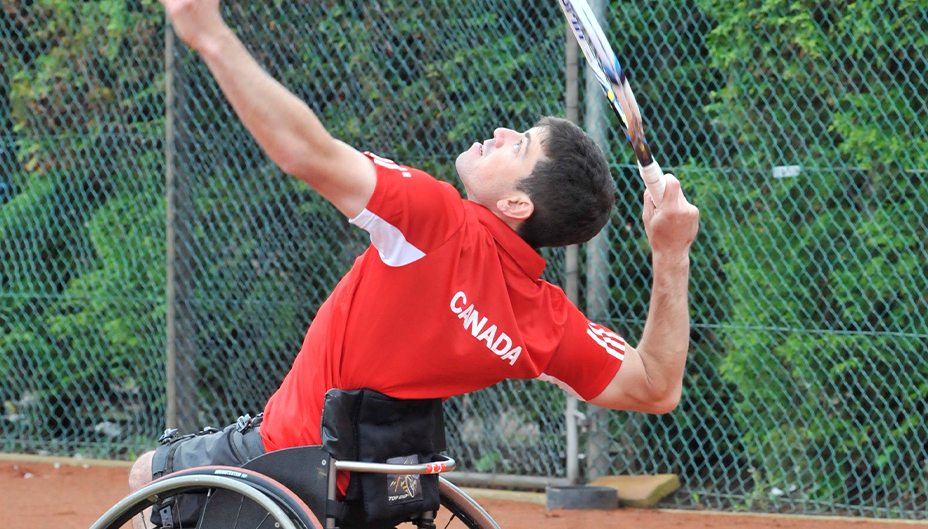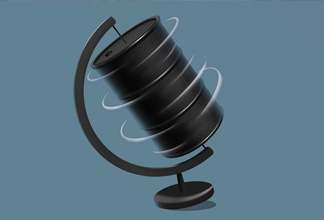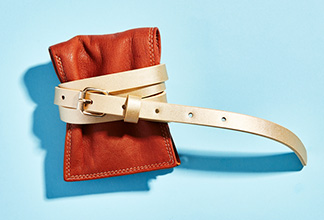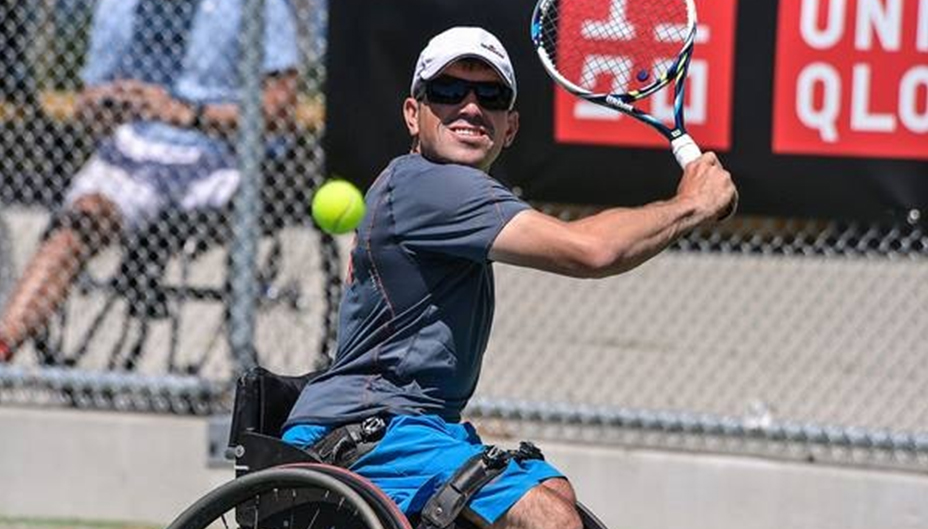What Tennis Can Teach Us About Investing
Written by The Inspired Investor Team
Published on September 10, 2025
minute read
Share:
When Joel Dembe, once Canada’s top wheelchair tennis player, lined up to serve for a potentially game-winning shot at the 2015 Pan Am Games in Toronto, he could barely steady his hands. “I was so nervous, I double faulted the first point,” he recalls. “But then I slowed down, took a breath and hit a lob right over their chair to win the match.”
That shot not only sealed Canada’s first international medal in wheelchair tennis but also captured a truth investors know well. Success – whether on the court or on a direct investing platform – often comes down to composure, timing and the ability to stick with your plan when under pressure.
Drawing from his career as Canada’s top-ranked wheelchair tennis player, a Paralympian at the 2012 London Games and a Pan Am Games medalist, Dembe, now a keynote speaker and senior manager at RBC, shares four tennis lessons that investors can learn from.
You don’t need to win every point
In tennis, as odd as it may sound, you can lose more points than your opponent and still win your match. “What matters isn’t every rally, it’s winning the big points,” says Dembe. A player who consistently holds serve and capitalizes on break opportunities can win even if the stat sheet shows more mistakes than successes.
It's similar for investors. If you’re a stock picker, not every buy will be your ace, and no ETF or mutual fund will climb in a straight line. Think of the long game – it can be helpful to stick to a long-term plan so your portfolio can grow over years.
At the same time, if an investment goes south, don’t panic. “Even Roger Federer said you have to move on after every point,” says Dembe. “If you slam a ball into the net, you can’t let that bad shot affect you the whole match.” In other words, don’t dwell on a loss or a miss. A single setback doesn’t define the outcome, but the ability to keep moving forward could.
Patience is paramount
Some of the sport’s greatest champions, including Rafael Nadal and Coco Gauff, have built their careers on patience. “Nadal’s mantra was ‘just one more shot’,” Dembe says. “Keep the ball in play. Wear your opponent down."
In investing, there’s always the temptation to chase the next big trend, buy on a whim or sell in panic, but that can derail a portfolio. Long-term growth comes from consistency. “Sometimes a good rally rewards patience,” he says. “That’s just like long-term investing. Patience beats impulsiveness.”
Resist the urge to swing wildly at every opportunity and instead focus on making steady contributions and taking measured risks.

Adapt to changing conditions
From the dry heat of Alabama to the hard-to-handle humidity of Brazil, no two tournaments are ever the same. “You never play in perfect conditions,” Dembe says. Surfaces vary too: clay slows balls, while hard courts speed them up. Wind can force a player to overshoot a serve. His strategy was always to prepare in advance and adjust. “I’d arrive early, get used to my conditions and game plan my opponent,” he says. “Even if I weren’t at 100%, I would say this is the norm and I need to adapt.”
Investing can be just as unpredictable. Tariffs, rate hikes, inflation, geopolitical tensions– something could always force someone to adapt. However, that doesn’t mean deviating from your strategy. “There’s always a crisis in the economy, always headlines,” Dembe notes. “But if you stick to your game plan, you’ll come out ahead.”
To perform well in all situations, it can be a good idea to build resilience into your portfolio. Diversifying across sectors and geographies and protecting against downturns by investing in multiple asset classes, acknowledges that conditions may change.
Master the mental game
Unlike with team sports, tennis offers nowhere to hide. “It’s just you out there,” Dembe says. “There’s a lot more accountability on your shoulders.”
He’s had many games where the score is nearly tied and all that’s standing in the way of him and victory are his nerves. “The mental game and your behaviour on the court will often dictate the match between two close opponents,” he explains.
At the same time, professional tennis players can play in front of thousands of screaming fans, which can cause them to lose focus. Dembe remembers playing before 7,000 people at the London Paralympics, with most cheering for his British opponent.
The only way to overcome these challenges, he says, was to focus on what he could control. Investors have to deal with nerves and noise, too, whether it’s from constant news headlines or worries over making the wrong move. In these situations, says Dembe, you need to stay confident and focused. “There’s going to be those high-pressure experiences where you might feel like you need to change everything,” he says. “But confidence in your plan can prevent costly mistakes.”
Ultimately, success in tennis and investing doesn’t come from a brilliant play but rather from patience, adaptability and the ability to stay calm under pressure. That final lob at the Pan Am Games that won Dembe the bronze? It wasn’t luck – it was a play he and his coach prepared for. “I stuck with the plan,” he says. “I started to slow down and not panic. A calm came over me and I hit that game-winning shot. It's no different for investors."
RBC Direct Investing Inc. and Royal Bank of Canada are separate corporate entities which are affiliated. RBC Direct Investing Inc. is a wholly owned subsidiary of Royal Bank of Canada and is a Member of the Canadian Investment Regulatory Organization and the Canadian Investor Protection Fund. Royal Bank of Canada and certain of its issuers are related to RBC Direct Investing Inc. RBC Direct Investing Inc. does not provide investment advice or recommendations regarding the purchase or sale of any securities. Investors are responsible for their own investment decisions. RBC Direct Investing is a business name used by RBC Direct Investing Inc. ® / ™ Trademark(s) of Royal Bank of Canada. RBC and Royal Bank are registered trademarks of Royal Bank of Canada. Used under licence.
© Royal Bank of Canada 2025.
Any information, opinions or views provided in this document, including hyperlinks to the RBC Direct Investing Inc. website or the websites of its affiliates or third parties, are for your general information only, and are not intended to provide legal, investment, financial, accounting, tax or other professional advice. While information presented is believed to be factual and current, its accuracy is not guaranteed and it should not be regarded as a complete analysis of the subjects discussed. All expressions of opinion reflect the judgment of the author(s) as of the date of publication and are subject to change. No endorsement of any third parties or their advice, opinions, information, products or services is expressly given or implied by RBC Direct Investing Inc. or its affiliates. You should consult with your advisor before taking any action based upon the information contained in this document.
Furthermore, the products, services and securities referred to in this publication are only available in Canada and other jurisdictions where they may be legally offered for sale. Information available on the RBC Direct Investing website is intended for access by residents of Canada only, and should not be accessed from any jurisdiction outside Canada.
Explore More

What Investors Can Learn from Hockey Star and RBC Olympian Sarah Nurse
Nurse's path to the podium reveals how preparation, planning and practice can turn potential into a golden opportunity
minute read

Crude Questions? A Look at Canada’s Oil Economy
What you need to know about Canada’s oil industry
minute read

How Inflation-Proof Are Your Investments?
Why inflation still matters – and how to stay ahead of it
minute read
Inspired Investor brings you personal stories, timely information and expert insights to empower your investment decisions. Visit About Us to find out more.







